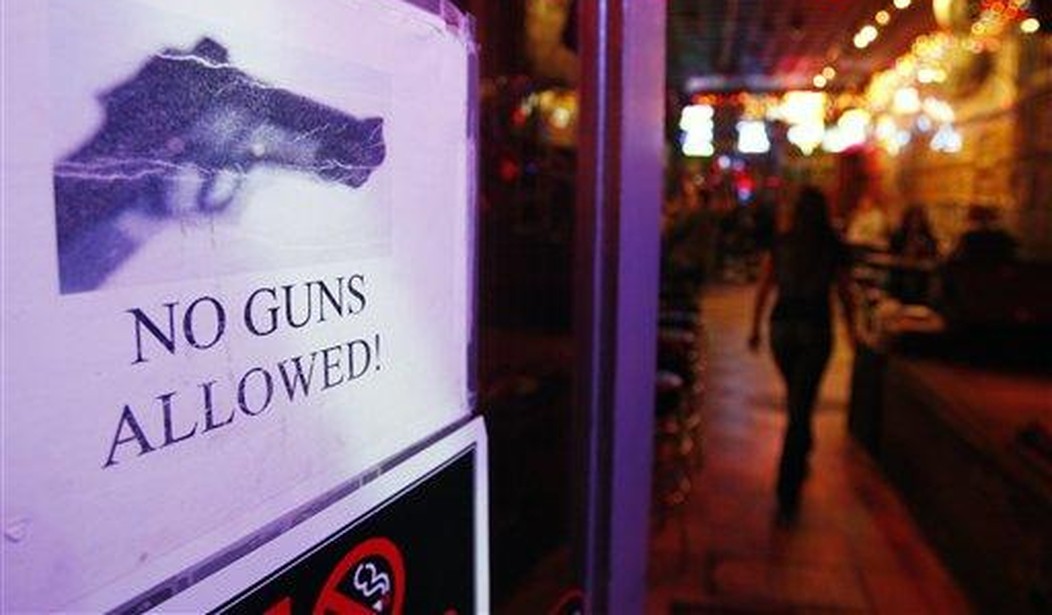U.S. District Judge John L. Sinatra, Jr. has already delivered one win to gun owners a few weeks ago when he granted an injunction barring the portion of New York’s “Concealed Carry Improvement Act” that made all houses of worship “gun-free zones” from being enforced; one of several decisions from federal judges casting severe doubt on the constitutionality of the gun control package.
Now Sinatra has once again declared that a portion of the CCIA should be put on ice; the default ban on concealed carry on all private property across the state. In an order released on Tuesday afternoon, Sinatra rejected the state’s prohibition; noting that while private property owners have the right to exclude gun owners from their premises if they choose, the state does not have the authority to impose that ban themselves. As Sinatra declared in his decision, under the test laid out by the Supreme Court in Bruen, it’s up to New York officials to prove to the court that this type of sweeping ban on all private property has some sort of analogue found in our nation’s history. In the judge’s opinion, New York has failed to do so.
The state… cites to a few colonial era and Reconstruction statutes (Maryland in 1715, Pennsylvania in 1721, New Jersey in 1722, New York in 1763, New Jersey in 1771, Louisiana in 1865, Texas in 1866, and Oregon in 1893. They do not carry the state’s burden…
… The state’s cited enactments do not demonstrate a tradition in support of its private property exclusion… the cited enactments are of unknown or limited duration and the State has not met its burden of showing endurance (of any sort) over time. For this reason too the State’s argument fails.
Sinatra went on to point out another flaw in New York’s argument: the state argues that private citizens have always possessed the right to ban firearms from their property, which is true enough. But as the judge argues, New York tries to flip that right on its head.
It is the property owner who must exercise that right – not the State. If a property owner wants to exclude, then (1) the property owner must (2) do so. When the State does so it runs afoul of the Second Amendment.
New York’s assertion that states can choose to ban firearms from all private property falls apart, says Sinatra, when you consider how the right to keep and bear arms has been traditionally applied across the country. New York’s de-facto ban stands as an extreme outlier, not a position consistent with the text, history, and tradition of the right to keep and bear arms. As Sinatra told the parties:
These are places that people, exercising their rights, frequent every day when they move outside their homes. The exclusion here makes all these places presumptively off-limits, backed up by the threat of prison. The Nation’s historical traditions have not countenanced such an incursion into the right to keep and bear arms across all varieties of private property spread out across the land. The right of self-defense is no less important and no less recognized on private property.
The case, known as Christian v. Nigrelli, is backed by the Second Amendment Foundation and the Firearms Policy Coalition, and SAF executive director Adam Kraut was quick to hail the ruling by Judge Sinatra after it was handed down, declaring that “having New York’s unconstitutionally sound law enjoined is a win for the public,” adding, “New York’s effort to restrict the public’s right to carry arms, through its imposition of outlandish requirements that have no roots in our country’s history and tradition, is a sign of how far its legislature is willing to go when it comes to depriving individuals of their constitutional rights.”
Now we’ll see how far the Second Circuit is willing to go in cutting New York some slack. The appeals court has already set aside one injunction barring enforcement of many of the CCIA’s provisions, at least temporarily, and New York Attorney General Letitia James will undoubtably file an appeal of Sinatra’s decision to the Second Circuit in the hope that the appellate court will keep the state’s unconstitutional burden on the right of self-defense in place while the case is being litigated. Eventually, of course, the Supreme Court will be asked to weigh in, and I suspect that justices aren’t going to have a lot of patience with the state’s attempt to do an end run around the Bruen decision.








Join the conversation as a VIP Member